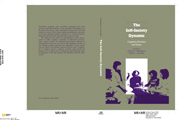Book contents
- Frontmatter
- Contents
- Contributors
- Preface and acknowledgments
- Introduction: The self–society dynamic
- 1 Exploring the relevance of social cognition for the relationship of self and society: Linking the cognitive perspective and identity theory
- 2 Toward a sociology of cognition
- 3 The cerebral self: Thinking and planning about identity-relevant activity
- 4 Growing up: The development and acquisition of social knowledge
- 5 The social contexts of self-feeling
- 6 Self-processes and emotional experiences
- 7 An affect control view of cognition and emotion
- 8 The self-concept as a basis for a theory of motivation
- 9 Attitudes, behavior, and the self
- 10 From changing selves toward changing society
- 11 Possible selves and social support: Social cognitive resources for coping and striving
- 12 Is the road to helping paved with good intentions? Or inertia?
- 13 Social structure and the moral self
- 14 The production of selves in personal relationships
- 15 Conclusion
- Indexes
10 - From changing selves toward changing society
Published online by Cambridge University Press: 23 September 2009
- Frontmatter
- Contents
- Contributors
- Preface and acknowledgments
- Introduction: The self–society dynamic
- 1 Exploring the relevance of social cognition for the relationship of self and society: Linking the cognitive perspective and identity theory
- 2 Toward a sociology of cognition
- 3 The cerebral self: Thinking and planning about identity-relevant activity
- 4 Growing up: The development and acquisition of social knowledge
- 5 The social contexts of self-feeling
- 6 Self-processes and emotional experiences
- 7 An affect control view of cognition and emotion
- 8 The self-concept as a basis for a theory of motivation
- 9 Attitudes, behavior, and the self
- 10 From changing selves toward changing society
- 11 Possible selves and social support: Social cognitive resources for coping and striving
- 12 Is the road to helping paved with good intentions? Or inertia?
- 13 Social structure and the moral self
- 14 The production of selves in personal relationships
- 15 Conclusion
- Indexes
Summary
Virtually all discussions of the relationship between self and society contain some acknowledgment of, and often apology for, the fact that social psychologists have more often considered the impact of social systems on individuals than the impact of individuals on social systems. Integration of knowledge of macrosocial structures and processes, microsocial interaction, and individual psychology is necessary to understand this relationship (House, 1981). In this chapter I sketch the outline of one of the many possible such integrations.
Although in exceptional circumstances, one particular individual can affect social systems, more often than not people affect social systems through their individual decisions to engage collectively in social actions. Hence I focus on an account of individuals' decisions to participate in actions such as social movements. I argue that phenomena such as social movements can be understood fully only by directing explicit attention to the experienced selves of individual actors. Shott (1979), among others, maintains that self-control is an essential component of social control; consistent with her reasoning, I suggest that self-change is an essential component of sustained social change. As Turner (1983) states, “Movements seldom achieve substantial and lasting successes without strong components of personal transformation.” Thus I attempt to identify those forces that impel the self to the redefinitions required to overcome the tendency toward self-definitional and hence social stability. I begin by reviewing sociological social psychological theories of the self and the relationship between self and society, emphasizing how these theories account (or fail to account) for changing selves.
- Type
- Chapter
- Information
- The Self-Society DynamicCognition, Emotion and Action, pp. 209 - 238Publisher: Cambridge University PressPrint publication year: 1991
- 2
- Cited by

